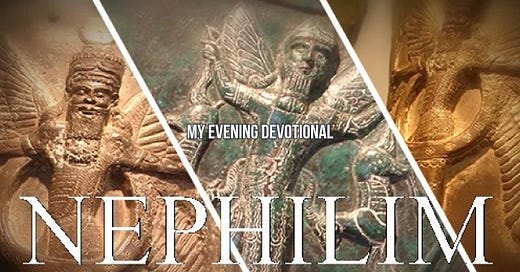This chapter recounts the account of the flood during Noah’s time and the events leading up to it. It details how the population of the earth increased and became corrupt and wicked, resulting in God’s decision to wipe out all living creatures through the flood. However, Noah and his family found favor with God because of their righteousness and were saved by God's divine mercy through the ark.
Genesis 6 also mentions the "sons of God" with the "daughters of men" and the offspring that resulted. While the identity of these "sons of God" is still a matter of debate among scholars, some suggest that they were angels that disobeyed God by mating with human women. This interpretation is known as the "angelic interpretation" and is also mentioned in other biblical texts.
Regardless of the interpretation, the overarching message in Genesis 6 is that God detests wickedness and seeks to judge it. However, God also shows mercy to those who are faithful and righteous.
In summary, Genesis 6 tells the story of the flood during Noah’s time and highlights the importance of righteousness and faithfulness in the eyes of God.
The Nephilim
**Genesis 6**
1 When human beings began to increase in number on the earth and daughters were born to them,
2 the sons of God saw that the daughters of humans were beautiful, and they married any of them they chose.
3 Then the Lord said, “My Spirit will not contend with[a] humans forever, for they are mortal[b]; their days will be a hundred and twenty years.”
4 The Nephilim were on the earth in those days—and also afterward—when the sons of God went to the daughters of humans and had children by them. They were the heroes of old, men of renown.
== Wikipedia
The Nephilim (Hebrew: נְפִילִים Nəfīlīm) are mysterious beings or people in the Hebrew Bible who are described as being large and strong. The word Nephilim is loosely translated as giants in many translations of the Hebrew Bible, but left untranslated in others. Some Jewish explanations interpret them as hybrid sons of fallen angels (demigods). ==
The word Nephilim is found in the Bible two times. The first is in Genesis 6:1-6 and then again in Numbers 13:33. Scholars and commentators translate the word Nephilim as giants or fallen ones. Even among the most brilliant, there is debate on translating this term.
One reason Nephilim is often translated as "fallen ones" is the relation to the Hebrew word “naphal” (to fall). One school of thought associates these beings with fallen angels or their offspring.
The interpretation of Genesis 6:1–4 is difficult and controversial. The debate centers on the interpretation of the phrase “sons of God.” Who are they?
Option 1: Sons of God = Sons of Seth
One view understands the “sons of God” as descendants of Seth. In this interpretation, Seth’s godly descendants were intoxicated by the beauty of women descended from Cain, thus marrying those who’d rejected God and leading to greater wickedness.
God forbade the Israelites from marrying Canaanite women (Ex. 34:16; Deut. 7:3). This can be an indication that this is the correct explanation,
Option 2: Sons of God = Fallen Angels
The oldest, and likely the most widely held, interpretation is that the “sons of God” are fallen angels (demons). This was the interpretation most favored in ancient Judaism and the early church
In 1 Peter 3:18–22, Peter refers to spirits in prison because they disobeyed in Noah’s day (1 Pet. 3:19–20).
The connection of these spirits with Noah’s day points strongly to Genesis 6. That these “spirits in prison” are fallen angels is further confirmed by similar passages in 2 Peter and Jude.
Option 3: Sons of God = Fallen Men
Lastly, a view held by the minority is the "sons of God" were simply fallen men.
This last view claims that the “sons of God” were godly men who married ungodly women. Not from the line of Seth – just common men.













Share this post